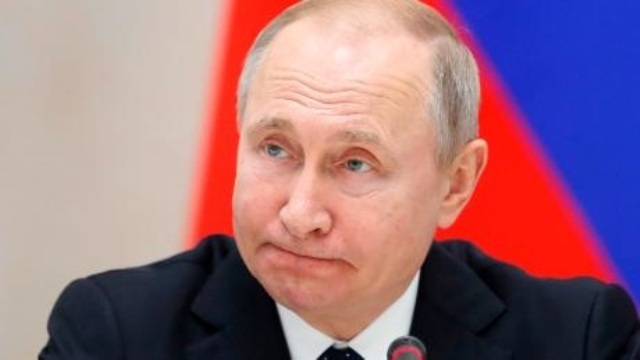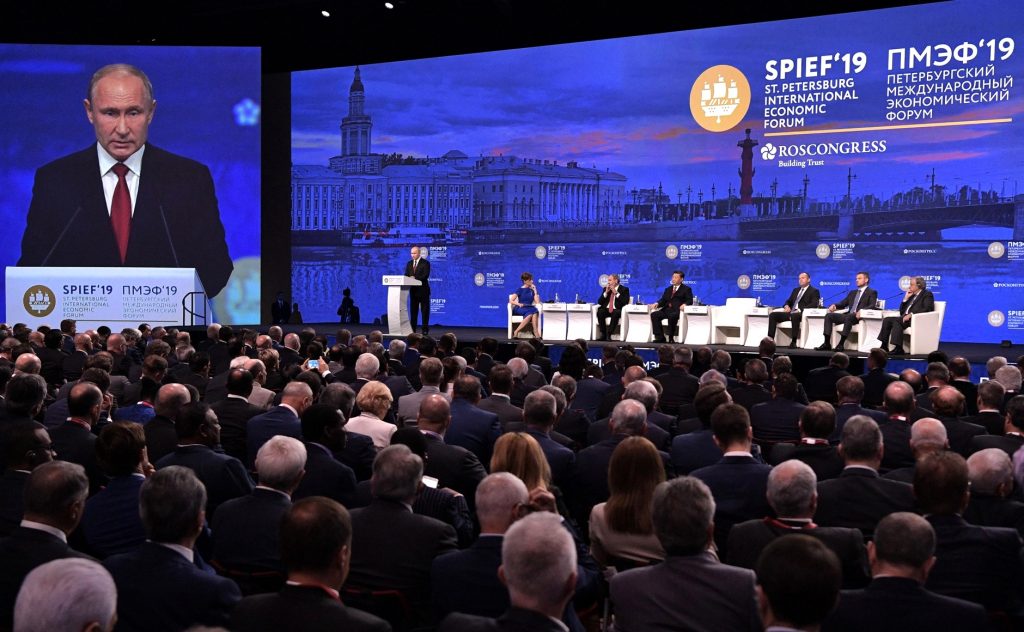
By TZ Business News Staff and Agencies.
Russian struggle to attract the African continent’s favour as a partner is getting hotter with intensified interest, but it may be late.
The Moscow-based journalist Kester Kenn Klomegah has reported bustling activity in the build-up to the upcoming Russia-Africa heads of state Summit planned for October, 2019—the summit through which Russia hopes to build stronger ties with Africa.
But western European analysts contend Russia might be a tad late entering the ‘Second Scramble for Africa’, according to the British Guardian. The British outlet has quoted the analyst Terry McGinn of Nelson, Lancashire as saying France and the United States of America seem to have had a head start on the continent—which might make it difficult for Russia to make gains.
The new scramble for Africa involves more powers than the first round over a century ago. This time it’s in part about securing resources such as oil, gas and rare earth metals crucial for military and civilian digital technology, and denying these resources to rival powers, the analysts say.
The British Guardian says Russia is seeking to bolster its presence in at least 13 countries across Africa by building relations with existing rulers, striking military deals, and grooming a new generation of “leaders” and undercover “agents”, leaked documents reveal.
This June of 2019, four African countries – Côte d’Ivoire, Lesotho, Niger and Somalia have for the first time attended the St. Petersburg International Economic Forum (SPIEF’19) held from June 6 to June 8 at Saint Petersburg, Russia under the theme “Creating a Sustainable Development Agenda”. The four new comers joined several other African nations at this year’s East European economic forum.
Over the years, SPIEF has become known an open platform to exchange best practices and key competences in the interest of providing sustainable development.
The SPIEF’19 Forum brought together a record number of participants, with over 19,000 people from 145 countries, with 1,300 guests representing heads of companies in attendance. The sheer number of business community participants, variety of thematic events, and level of representation on both national and international levels underscored the status of SPIEF as a truly global economic forum.
The main Forum event was the plenary session, with the participation of President of the Russian Federation Vladimir Putin, President of the People’s Republic of China Xi Jinping, President of the Republic of Bulgaria Rumen Radev, Prime Minister of the Republic of Armenia Nikol Pashinyan, Prime Minister of the Slovak Republic Peter Pellegrini, and Secretary-General of the United Nations António Guterres.
During the four days of the Forum, over 1,300 speakers and moderators, including Russian and international experts, took part in discussions. They shared their knowledge, experiences and best practices with the participants of the Forum. A special area hosted interviews with politicians, government officials, representatives of big business.
On the sidelines of the main event there were business dialogues between Russia and other countries. Russia–Africa dialogues were especially very popular this year. President of the Senate of the Parliament of the Republic of Zimbabwe, Mabel Chinomona, was one of the African participants. State officials came from Botswana, Egypt, Zimbabwe, Côte d’Ivoire, Lesotho, Mauritius, Niger, Sierra Leone and Uganda.
The Russia-Africa session featured Mikhail Bogdanov, Deputy Minister of Foreign Affairs of the Russian Federation; Special Presidential Representative for the Middle East and Africa; Amani Abou-Zeid, Commissioner for Infrastructure and Energy, African Union Commission and Tatyana Valovaya, Member of the Board – Minister in Charge of Integration and Macroeconomics, Eurasian Economic Commission.
Isabel Jose dos Santos, Chairman, Unitel SA; Daniel Kablan Duncan, Vice President of the Republic of Cote d’Ivoire; Dmitry Konyaev, Deputy Chairman of the Board of Directors, URALCHEM JSC and Benedict Okey Oramah, President, Chairman of the Board of Director, The African Export Import Bank.
Sylvie Baipo-Temon, Minister of Foreign Affairs and Central Africans Abroad of the Central African Republic; Nikita Gusakov, General Director, EXIAR; Boris Ivanov, Managing Director, GPB Global Resources and Nataliya Zaiser, Chair of the Board, Africa Business Initiative UNION; Executive Secretary, Russian National Committee, World Energy Council (WEC).

The African participants noted that 2019 should be a historic year in the development of Russian-African relations. The summit of heads of state in October should take place amidst record growth in Russian exports to Africa.
Russia is interested in new markets and international alliances more than ever before, while Africa has solidified its position as one of the centres of global economic growth in recent years.
In this context, the countries need to rethink the approaches, mechanisms, and tools they use for cooperation in order to take their relations to the next level as their significance grows in the new conditions of world politics and economics. What steps are needed to give a new impetus to bilateral economic relations? What are the key initiatives and competencies that can create a deeper strategic partnership between Russia and African states?
These are among key questions developed as the meeting agenda for the upcoming Russia-Africa Summit planned for October in Sochi under the co-chairmanship of President of the Russian Federation Vladimir Putin and President of the Arab Republic of Egypt Abdel Fattah el-Sisi, Chairperson of the African Union.
In London the British Guardian reports that foreign involvement in Africa is far from unique to Russia. The new scramble for Africa involves more powers than the first round over a century ago, where (Leaked documents reveal Russia’s efforts to exert influence in Africa, 12 June).
This time it’s in part about securing resources such as oil, gas and rare earth metals crucial for military and civilian digital technology, and denying these resources to rival powers.
The United States Africa Command (Africom) now has 7,500 American troops active in all but one African country, up from 6,000 in 2017. Apart from its huge base in Djibouti, controlling the narrow strait between the Red Sea and the Gulf of Aden, a vital chokepoint through which all shipping using the Suez Canal has to pass – most importantly (for the Americans) Chinese shipping – the US has constructed small “lily pad” bases, whose presence gives the US a strong military capability.
France, too, is keen to protect its control over north and west Africa, partly from encroachment by the US, while seeking to penetrate the anglophone sphere. Britain, likewise, is beefing up its diplomatic and economic presence in Africa, notably in francophone countries, and increasingly in response to a post-Brexit order.
Apart from a grab for resources, the new scramble is also designed to counter Chinese investment in Africa – in particular its control over cobalt mining, which provides the raw material for electric car batteries and mobile phones.
Interestingly, China’s relationship with Africa, while unequal, is NOT neocolonial. It imposes no conditions on borrowers such as privatisation, welfare cuts and cuts to subsidies. Harding and Burke’s focus on Russian involvement in Africa paints a narrow, one-sided picture, says Tracey Lindner in London.
An article in the Nation in 2015 by Nick Turse included a map of the continent with all the US bases at that time picked out in red, which looked like an outbreak of measles. The UK has not been slow either in countering the Russian threat, and was quick to take part in the overthrow of Muammar Gaddafi in 2011. Indeed, the UK was involved as far back as the 1990s in countering the Russian threat by funding the Libyan Islamic Fighting Group. The quote at the end of the piece from a Russian operative suggesting that Russia needs to find reliable partners among African states and set up bases may be a tad too late if the US and France have picked off all the best sites, says Terry McGinn.



